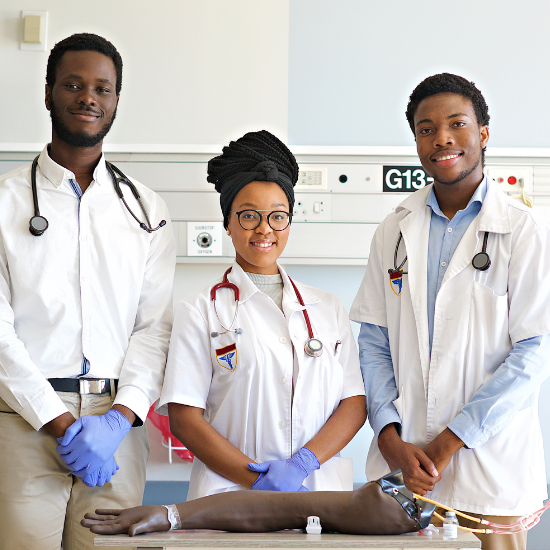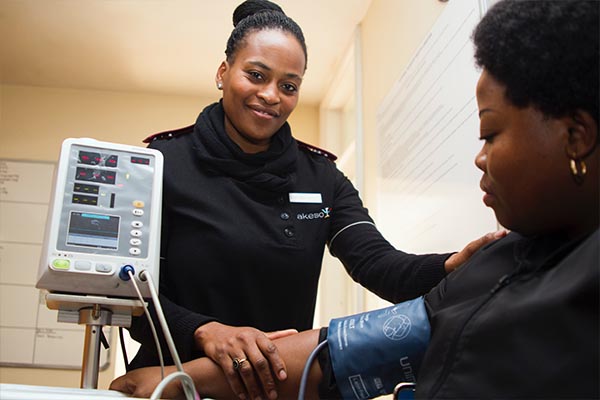Specialist Northeast Medical Institute Phlebotomy Classes Stamford: Obtain Licensed
Specialist Northeast Medical Institute Phlebotomy Classes Stamford: Obtain Licensed
Blog Article
Important Variables to Take Into Consideration When Selecting one of the most Appropriate Medical College Curriculum for You
Selecting one of the most suitable clinical institution curriculum is a critical decision that can substantially affect your academic trip and future job path. As striving physician, the selection of curriculum need to line up with your individual discovering style and occupation ambitions. However, past these initial factors to consider, different critical aspects enter play when making this option. By exploring the nuances of teaching approaches, curriculum flexibility, and medical exposure possibilities, a more extensive understanding of what makes a curriculum suitable for you emerges. Allow's check out these critical components that can form your clinical education and learning and inevitably, your professional trajectory.
Personal Understanding Design

Medical colleges that supply diverse training methods and sources can suit various learning designs, fostering a dynamic and inclusive instructional environment. Ultimately, comprehending personal knowing choices empowers students to make enlightened decisions regarding their medical education, setting a solid structure for their future professions in health care.
Career Purposes Alignment

Moreover, lining up profession goals with the clinical institution educational program can likewise enhance inspiration and interaction throughout the instructional journey. They are extra likely to stay focused and committed to their studies when students see the straight relevance of their coursework to their future career. For that reason, when selecting a medical school educational program, it is important to thoroughly take into consideration just how well it lines up with one's job goals to ensure an effective and meeting specialist course.
Teaching Methods
Taking into consideration the placement of profession purposes with the chosen medical school educational program, an evaluation of the mentor methodologies employed comes to be critical in forming the discovering experience. The effectiveness of a clinical school curriculum heavily counts on the training techniques used by the establishment. Different mentor methods, such as lectures, tiny group conversations, problem-based discovering, simulation-based training, and hands-on medical experience, can substantially impact exactly how well trainees comprehend and retain details.
Lectures are a typical however still frequently used approach for supplying web content to a huge team of trainees successfully. Small seminar foster collaboration, crucial reasoning, and interaction skills among trainees. Problem-based learning motivates energetic participation, self-directed discovering, and analytic abilities. Simulation-based training permits pupils to exercise professional abilities in a controlled environment prior to connecting with genuine clients. Hands-on professional experience uses a direct understanding of individual treatment and medical methods.
When picking a clinical institution curriculum, striving students ought to consider the teaching techniques utilized to make certain that their understanding preferences and staminas straighten with the academic method of the institution.
Educational Program Flexibility
When assessing medical school programs, assessing the level of curriculum versatility is important for prospective trainees seeking a customized educational experience. Educational program versatility refers to the degree to which students can individualize their discovering courses within the clinical college curriculum. A curriculum that uses flexibility enables trainees to pursue their passions, concentrate on locations where they require a lot more support, and take part in learning experiences that line up with their profession goals.

Prospective medical trainees must consider exactly how a clinical institution's educational program flexibility lines up with their knowing preferences, profession desires, and personal objectives. By selecting a program that provides the right equilibrium of structure and flexibility, trainees description can optimize their educational experience and prepare themselves for successful professions in medication.
Professional Direct Exposure Opportunities
Exploring the useful application of clinical expertise, professional exposure opportunities play an important function fit an extensive clinical education and learning. These possibilities give students with indispensable hands-on experience in real healthcare setups, enabling them to connect the gap in between concept and technique. When considering clinical institution educational program, the high quality and quantity of professional direct exposure need to be very carefully examined.
Effective professional exposure needs to provide a varied variety of experiences throughout various specialties, guaranteeing that students are exposed to different clinical scenarios and individual demographics. Exposure to outpatient facilities, inpatient wards, surgical cinemas, and emergency departments can aid trainees create a well-shaped understanding of various facets of health care delivery. Furthermore, possibilities for community-based care and communications with underserved populaces can promote a deeper admiration for the social factors of health and wellness.
Additionally, the presence of helpful professors and advisors during these clinical experiences can significantly boost the discovering process. Faculty guidance and positive comments can help trainees assess their medical experiences, determine locations for renovation, and enhance their clinical skills and decision-making abilities (Northeast Medical Institute CNA Classes Near me Stamford). Generally, durable clinical exposure opportunities are necessary for preparing future medical professionals to provide quality person care properly
Conclusion
Finally, when choosing a medical college curriculum, it is essential to consider your individual discovering style, positioning with profession purposes, teaching methods, curriculum versatility, and professional direct exposure chances. These variables play a vital role in figuring out the most appropriate program for your specialist and instructional development. Make certain to thoroughly review each element to make a notified choice that will best support your development in the medical area.
Comprehending one's personal knowing design is essential when selecting a clinical college educational program. By recognizing one's finding out design early on, striving sorbonne university courses clinical trainees can tactically select a curriculum that provides to their toughness, ultimately enhancing their learning experience and academic success.
When assessing medical institution programs, examining the degree of curriculum flexibility is essential for potential trainees seeking a tailored instructional experience. Curriculum flexibility refers to the level to which Visit Website trainees can personalize their learning paths within the medical school curriculum.In conclusion, when choosing a clinical institution educational program, it is important to consider your individual knowing design, placement with profession goals, teaching approaches, educational program adaptability, and medical exposure chances.
Report this page